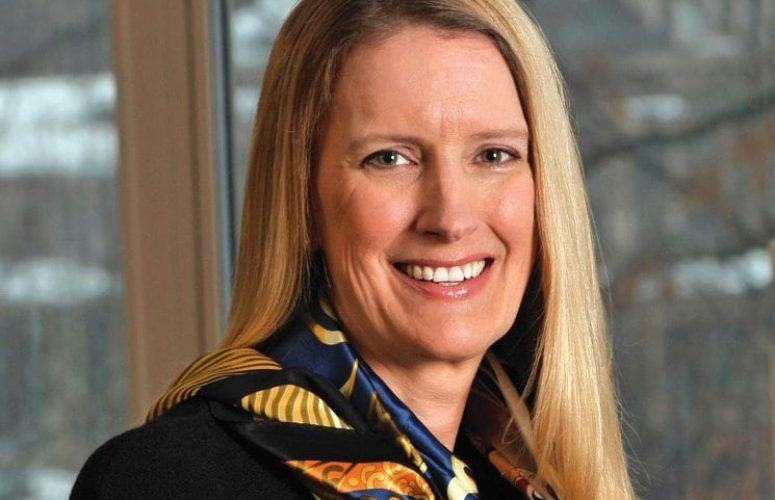
Preparing the Next Generation of Advocates
Public policy programs at New Jersey’s institutions of higher education are teaching students how to deal with increasingly complex societal issues.
By Lisa Goulian Twiste, Contributing Writer On Aug 4, 2023The field of public administration has expanded in recent years, with greater opportunities for careers in the public, private and nonprofit sectors. As the stakes of political issues continue to rise, New Jersey’s higher education institutions are enhancing their programs to better prepare the next generation of advocates who do everything from analyzing data and planning budgets, to liaising between government agencies and the public, establishing consensus, and enforcing government policies.
The College of New Jersey
“Public policy is about understanding very complex and interrelated systems, and systems on which we are collecting more data than ever before,” says Daniel Bowen, associate professor and public policy graduate director in The College of New Jersey’s (TCNJ) Department of Political Science. “Policy makers in New Jersey and elsewhere are facing a number of critical problems, including a housing affordability crisis, preparing our communities for the long-term effects of climate change, and substantial racial inequity in the outcomes of our criminal justice, health, and education systems.”
Ewing-based TCNJ encourages undergraduate students interested in public administration to pursue traditional disciplines like economics, political science, and sociology, or areas of substantial policy interest like education, criminology, public health, and environmental science. From there, they can pursue a graduate certificate in Public Policy or a Master of Public Policy (MPP), a 36-credit accelerated program focused on skill development and training in theories of the policy process, economics, public finance and management, and statistics and data analysis. The MPP degree culminates with a master’s thesis that provides an opportunity for students to manage a large, policy-focused research project.
“Students often become interested in public policy during their undergraduate years, realizing a career in public policy offers the opportunity to marry their substantive interests in, for example, criminal justice policy or environmental policy, with their research and management abilities,” Bowen says. “The mission of the TCNJ MPP program is to equip students to be effective policy analysts, researchers, advocates, and managers through high quality, accelerated policy training.”
Rutgers University
Rutgers University in New Brunswick usually has 20-30 students in its undergraduate public policy program any given year, and 30-50 students in its graduate programs. The core curriculum, which is grounded in basics like economics and understanding political institutions, is complemented by electives on subjects like racial and income inequality and climate change, as well as the newest master’s program in Public Informatics, which concentrates on timely issues like artificial intelligence and big data.
Graduate students also need to complete the applied field experience (an internship), which is most frequently done at a public policy-oriented organization in the summer between enrollment years, and there is a semester-long capstone project done under the supervision of a professor that involves four to eight students doing real-world work for an outside organization. Stuart Shapiro, dean of the Edward J. Bloustein School of Planning and Public Policy, calls the capstone a “win-win,” as clients benefit from the ideas of students about to enter the workforce, and students gain valuable experience in the field they’re about to enter.
Program graduates, some of whom are international students, usually land a job within six months in public organizations like the Governor’s office, New Jersey Economic Development Authority, the Government Accountability Office in Washington, D.C., or any number of private companies and nonprofits. Some of these graduates include NJ State Representative Dan Benson, Robert Asaro-Angelo (Commissioner at the New Jersey Department of Labor & Workforce Development), and Brandon McKoy (co-leader of the State Fiscal Policy Division at the Center for Budget and Policy Priorities).
“Students pursuing public policy as a field come with a lot of idealism: they want to make the world a better place. We want to maintain that idealism, but also give them the tools to be as effective as possible in improving public welfare,” Shapiro says. “We’re living in a time when public service is often denigrated, and it’s not the best-paying field, but it’s so important.”
Rowan University
Launched in the spring of 2023, Rowan University’s MPP program prepares students to develop skills for leadership as well as content knowledge in a specialized field. Because the program is embedded within Rowan’s main campus in Glassboro, students can take classes across a variety of disciplines to complement their core policy courses while choosing a concentration such as criminal justice, diversity and inclusion, education, engineering, health, social change, sustainability and environmental studies, and emergency management. At the culmination of the program, students complete an internship or thesis and demonstrate their knowledge through a capstone project.
The program welcomes students from all career stages, including some with policy work experience, those looking to change careers, and students who have little career experience because they are in the combined BA/MPP program. Rowan graduates who work in the field of public policy include New Jersey Assemblyman Bill Moen, State Senator Troy Singleton and State Senator Fred Madden.
According to Elaine Zundl, lecturer of political science and coordinator of the MPP at Rowan, the policy community is still primarily concerned with dramatic societal shifts related to the COVID-19 pandemic, which changed state budgets and local economies, while accelerating the pace of automation and digitalization. “As we move into the post-pandemic era, good policies will focus on how to protect the most vulnerable members of society from the negative impacts of rapid change,” she says.
Zundl also points out that Rowan’s public policy curriculum is less prone to getting “stale” than other disciplines because the courses use case studies and simulations that ground the program in real-world issues.
Knowing that program graduates will be thrust into an increasingly polarized political environment, Rowan tries to represent a variety of perspectives in the classroom, where respectful debate is encouraged and students are asked to brainstorm ideas on how to make political discussion and disagreement more productive, Zundl says.
“In the end, students come to realize that democracy is a work in progress, and we need everyone’s participation and perspective, even those with whom we disagree,” she adds. “We hope they will take seriously their responsibility to make policymaking more equitable.”
To access more business news, visit NJB News Now.
Related Articles:





